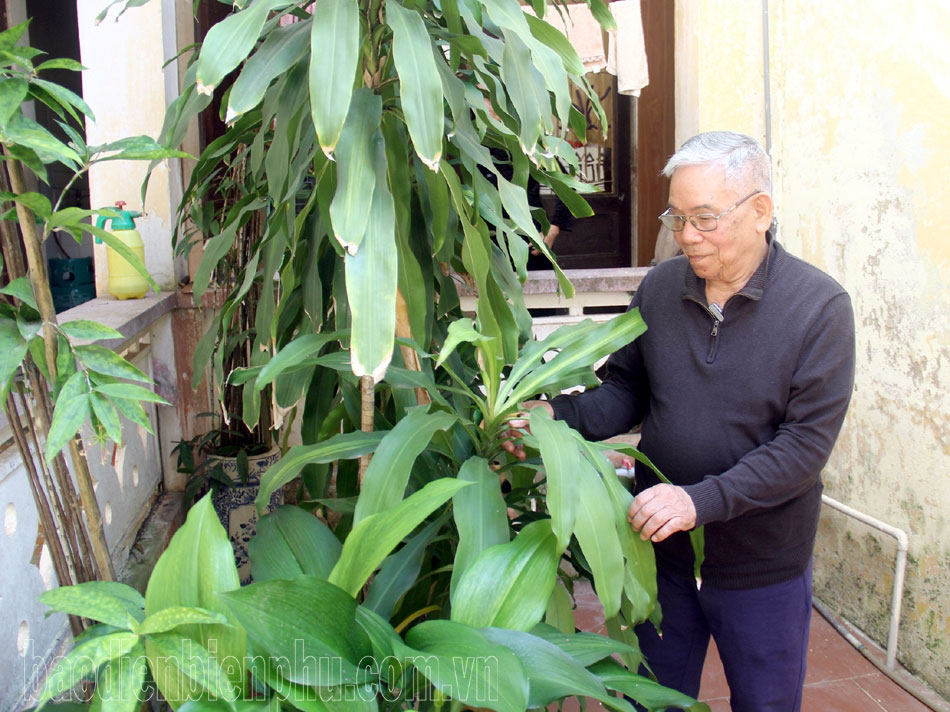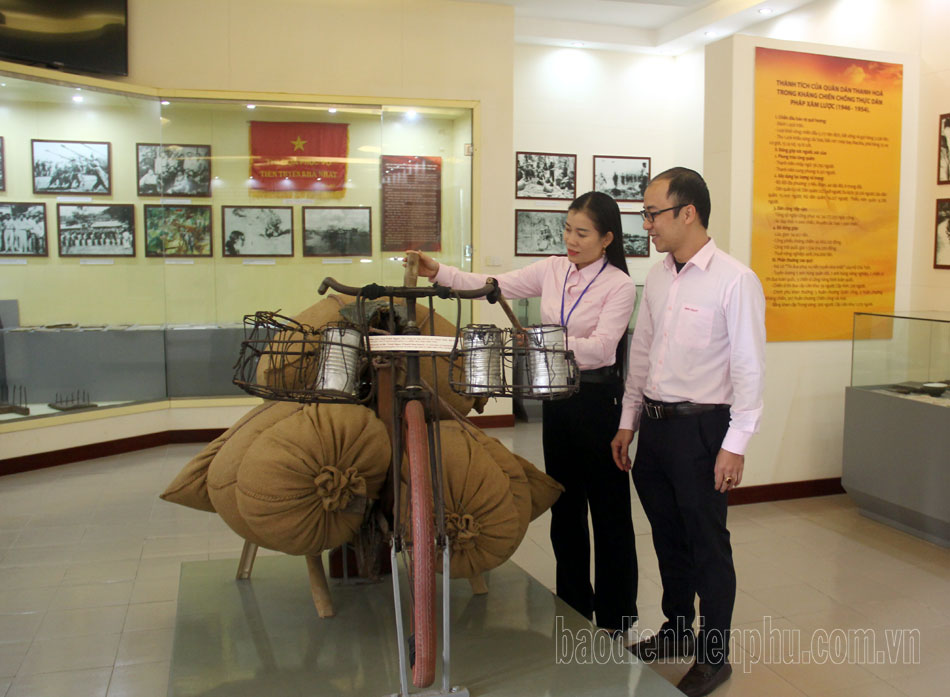(1).jpg)
Điện Biên soldier Hoàng Tiến Lực recalls his combat experience on the battlefield.
The bravery displayed by his fellow soldiers, their valiant battles, and the sacrifices they made will forever be etched in the memory of Điện Biên soldier Hoàng Tiến Lực from Hoằng Sơn Commune, Hoằng Hóa District, Thanh Hóa Province.
"The battle to conquer Hill A1 stands out as one of the fiercest and most triumphant engagements in the history of the Điện Biên Phủ campaign," he recounted. "We alternated between attacking and defending, fiercely contesting every inch of territory. When one comrade fell, another would step forward, resolute and unwavering in our determination to vanquish the enemy."
"As a member of Company 506, Regiment 174, I participated in all three stages of the campaign," he continued. "As a member of the medical transport unit, I was constantly by the side of the fighting unit. We carried stretchers on our heads to transport wounded and fallen comrades, trudging through the muddy terrain of Điện Biên, soaked by relentless rain. Our faces and heads were smeared with blood and grime from the injured soldiers, a sight that weighed heavily on our hearts."

Frontline worker Phùng Sỹ Các still remembers climbing passes and wading streams during the Điện Biên Phủ campaign.
"After our troops launched their second attack, the central area of Điện Biên Phủ fell into a state of passivity despite sustaining high casualties," explained the soldier.
He continued, "As the third battle commenced, intelligence revealed that the enemy had constructed tunnels beneath hill A1. My unit, alongside an engineer unit, was tasked with excavating an underground tunnel adjacent to the enemy's. As we dug toward their subterranean bunker, our soldiers meticulously placed nearly a tonne of explosives."
"On May 6, 1954, at precisely 8:30 p.m., the explosive block positioned at the end of our tunnel on hill A1 detonated," he recounted. "Our troops, capitalising on the chaos caused by the explosion, launched coordinated assaults from various angles, effectively neutralising the enemy's counterattacks and paving the way for an assault on the De Castries tunnel. By May 7, 1954, our brave warriors had breached the enemy's headquarters and hoisted the victory flag."
Reflecting on the significance of their achievement, the soldier expressed gratitude for the opportunity to meet Phùng Sỹ Các, a fellow front-line worker in the Điện Biên Phủ Campaign, during a business trip back to Thanh Hóa.
At 88 years old, with failing eyesight and weakened legs, Các resides in a modest one-story home in Đông Thọ Ward, Thanh Hóa Province. Despite his physical limitations, he displayed a remarkable agility when he realised our interest in hearing about his heroic youth.
Delving into his memories, Các began searching for mementos that had been carefully preserved over the years. "Many villagers in Thanh Hóa," he recalled, "sent letters expressing their willingness to join the army, the youth volunteer corps, and serve as front-line workers during the battle against the French."
At the tender age of 17, fueled by his disdain for the enemy, Các penned a letter offering to enlist voluntarily in the military, inspired by a deep sense of patriotism and duty.

Tourists visit the Thanh Hóa Province’s museum where memories of the youth volunteer and frontline worker forces still remain.
Các and 11 other villagers embarked on their journey to the front lines, trekking 6 kilometers away from their homes. Taking charge of the squad, Các recounted, "We were each assigned two poles and a burden, tasked with transporting rice supplies to support our warriors in battle."
"Following closely in the footsteps of the person ahead, we navigated through steep passes and rugged mountains," he explained. "Our journey was perilous, marred by relentless bombing as we marched toward Sơn La Province."
"The supply route soon became a battleground as the French colonialists discovered it," Các continued.
"In response to the urgent needs of the battlefield, I assumed additional responsibilities, coordinating transportation from Tuan Giao to Điện Biên Phủ. We worked tirelessly to clear pathways through deep streams, widen narrow passages, fill in muddy areas, and strategically place boulders to obstruct muddy paths, ensuring the safe passage of vital supplies."
“I was given the crucial duty of bringing ammunition for the soldiers to use in their combat when we were roughly 15 kilometres from the artillery battleground. We succeeded in finishing the operation despite the threats posed by the enemy aircraft that was continuously sweeping the area.”
“I remained on duty to clear the battlefield and look for mines after we won. August 1954 was when we finally left Điện Biên,” he said.




.jpg)
.jpg)
.jpg)
.jpg)

.jpg)
.jpg)
.jpg)
.jpg)
.jpg)

.jpg)
.jpg)


.jpg)
.jpg)
You have 500/500 characters left
Please enter 5 or more characters!!!